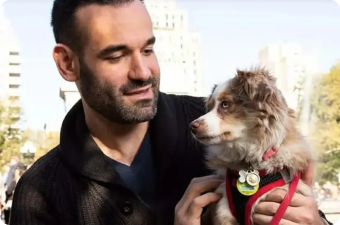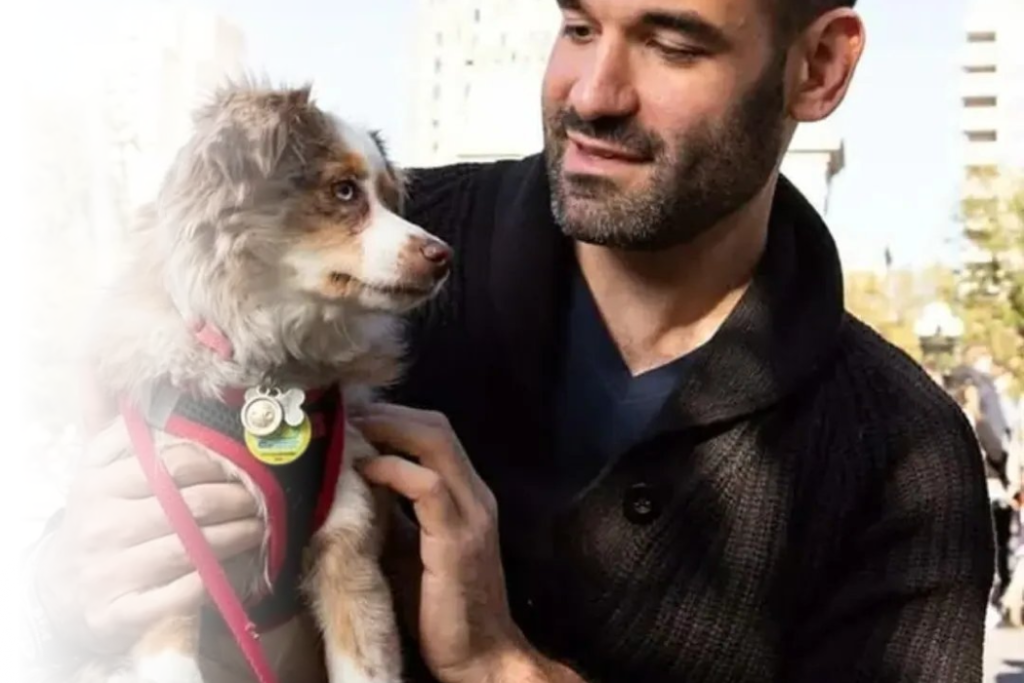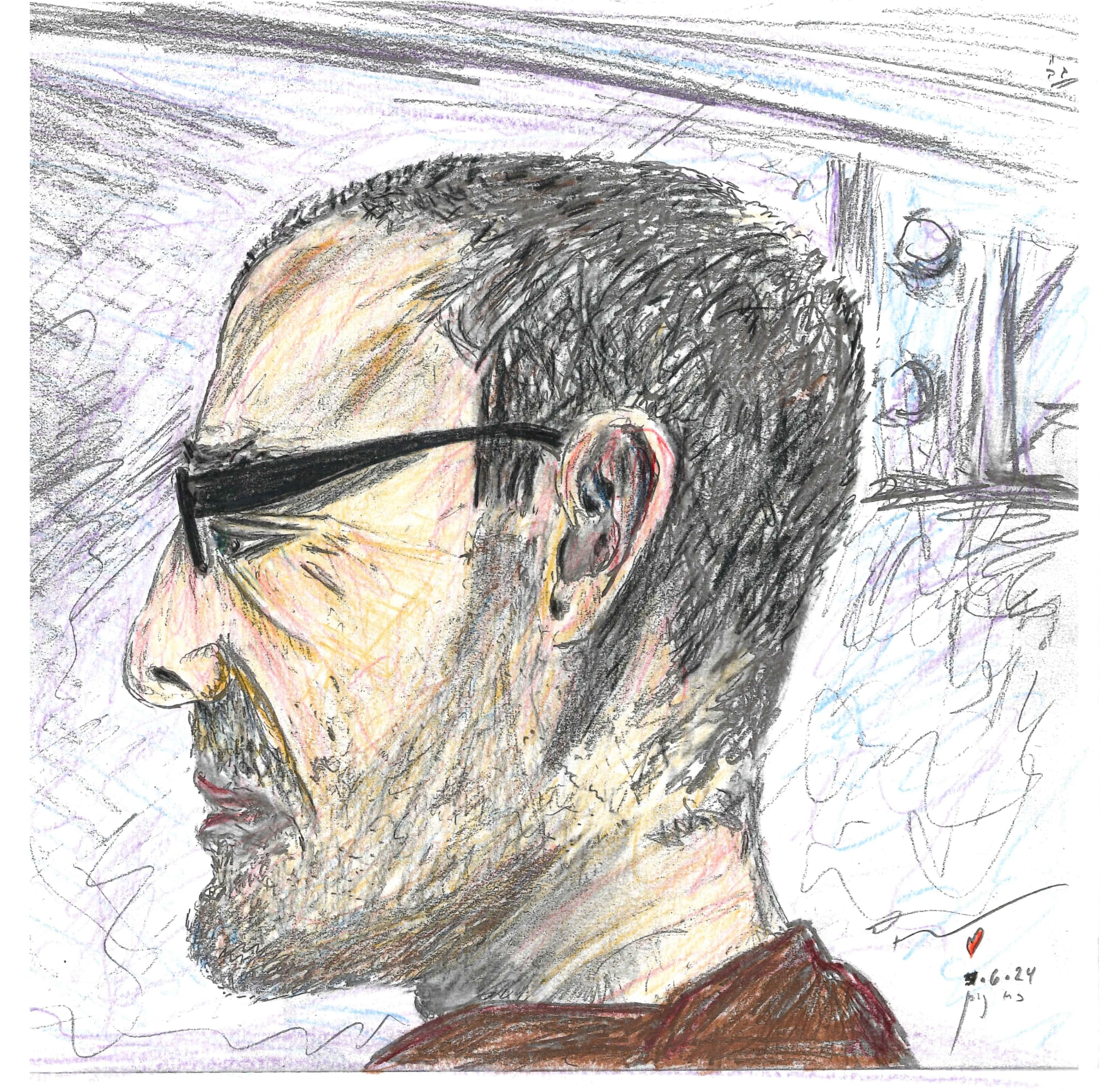Hi guys, Now that I have some breathing room, a bit of a longer note…
Before I begin: Next visiting day is SUNDAY. Please message my dad [email protected] if you’d like to visit and haven’t filled in a form. (G-d willing those who have will be approved before this Sunday and we’ll update you this week.)
—-
Asking for Help: Parshat Yitro Prison is difficult, which is no surprise to anyone, but it is also an opportunity to be reminded, and educated about the power we have at any moment to choose our emotional reaction, and to maintain a positive state regardless of outcome.
This is certainly true for me, where the physical pain and illness is brutal and worstening, but I’ve been able to remain mentally strong and keep a positive outlook — something that took the last two years of hard work to achieve.
This, of course, is one of Viktor Frankl’s core messages in Man’s Search for Meaning. The freedom nobody can take from us is the freedom to choose our reaction.
However, just because we have the freedom to choose doesn’t make it easy all the time. That’s where practice, building up faith, confidence, perspective, and mental fortitude come in.
One theme I see consistently here, and one that has challenged me throughout the past few years — and decades — is that in moments where we feel weak, limited, crushed under the weight of the world, we sometimes make decisions we will regret.
If I had to pick one ingredient that has put so many men inside here, it would be that: A feeling of weakness.
When you speak with guys about how they ended up here, you hear stories of them feeling desperate.
You’ve read my stories about the former bank robbers and drug dealers who were desparate for cash, afraid of not making rent, paying for their kids’ expenses, etc., but it permeates every category of alleged offense.
I’m often reminded here of Dr. Jordan Peterson’s line, “If you’re afraid of strong men, wait till you see what weak men will do.”
Weak men “just follow orders”, of evil boses or evil inclinations — they go with their ego-driven, fear-driven gut.
Strong people do not prey on the weak, people who feel confident do not degrade others, men with faith do not do unethical things for a pay raise or pension. These are actions of the emotionally, spiritually weak.
Feeling weak, overwhelmed, burdened beyond our capacity — feeling we are not enough — is going to happen to everyone at times. We are human, imperfect and vulnerable, and life can be very challenging in many ways. But falling into the lie that we cannot bear the weight doesn’t have to happen with the same frequency or intesity. We have the freedom to choose our reaction. We can get better and stronger every day such that it becomes rare that we “break”.
And we do not have to go it alone. The Torah makes it clear we shouldn’t.
“It is not good for man to be alone,” G-d observes immediately after creating Adam, “I will make him a helper corresponding to him.” (Gen 2:18)
In this week’s Parsha, Yitro, we get the Ten Commandments, the penultimate event of the Torah, the sole basis for our faith according to Maimonides, because the entire nation of Israel heard *directly* from G-d.
And yet the Parsha is not named for Revelation, but for Moses’ father-in-law, Yitro, who makes a brief appearance!
Yitro (Jethro) sees Moses standing and judging each legal dispute himself, asks him why he’s doing it this way, and after Moses explains that he’s the one who understands the laws, Yitro replies, “That thing that you do is not good.” (Ex 18:17)
Yitro tells Moses he will be worn out, and the people will be worn out, and this is not good for them either. He advises him to appoint judges over thousands, hundreds, fifty, and ten men.
This is an astounding act. Moses just led the Jewish people out of Egypt, defeating the most-powerful empire, speaking directly with G-d, he is about to ascend the Mount Sinai and get the Torah (and according to some major commentaries he just did), and his father-in-law tells him he’s doing things wrong! And Moses does what he says!
And for this, Yitro has a Torah portion named for him.
What was the deeper lesson that earned Yitro such honor?
Sometimes even the greatest among us need help, and it’s not fair to anyone to lift more than you can handle, not to you, not to the people you’re helping.
In fact, it’s shortchanging those you can train and elevate into helpers.
Yitro’s advice is not only to take help, but to make leaders out of others, so that they may create helpers.
Israel as a nation became greater through Moses training these judges and legal experts. Such training has become an icon and core of Jewish tradition and culture. Despite physical exiles and incomprehensible tragedies, the Torah has never left us, nor have we left the Torah, because we are a nation that builds leaders in Torah from birth. Because no one man is carrying the burdern, and everyone can help someone else…maybe just 10 people, maybe 50, maybe thousands…
This idea permeates so much of Judaism. Our highest form of charity is to make a person self-sustaining through a loan or investment or gift to start a business, or giving them a job. Of course, the only thing above this is to free a captive, for the same reason and because their health and life at at-risk in captivity (Hi!).
If Moses had to ask for help, so, surely do we.
… And so now I must: Many of you have helped me and my family fight this “Major Injustice” as Professors Lessig, Dershowitz, Coleman, and so many other legal experts have called it (You can see their writing and videos at https://justiceforari.org ). It has been difficult at every turn to ask for help, and it is still difficult to do so. The way this case has dragged on has been unimaginable and brutal, though please-G-d we will prevail soon.
It is difficult to ask for help, but we must, and because I’m locked in here, I ask that you reach out to my dad ( [email protected] ) to see how you can help, and that you encourage others to help, too.
If you’re unable to help with the legal defense fund, there are other ways to help. You can visit, mail, advocate, and you can reach out and encourage others to help.
in here falls on my father and mother, I ask that you do what you can to alleviate THEIR stress, and that you be proactive in creating other leaders who can help, and ask them to do the same.
We will prevail.
And I will see you soon, G-d willing on the outside.
G-d bless you, and thank you all for your love and help.
Ari =============
Group message. V 1.0. You may share this message.
Learn more at justiceForAri.org


